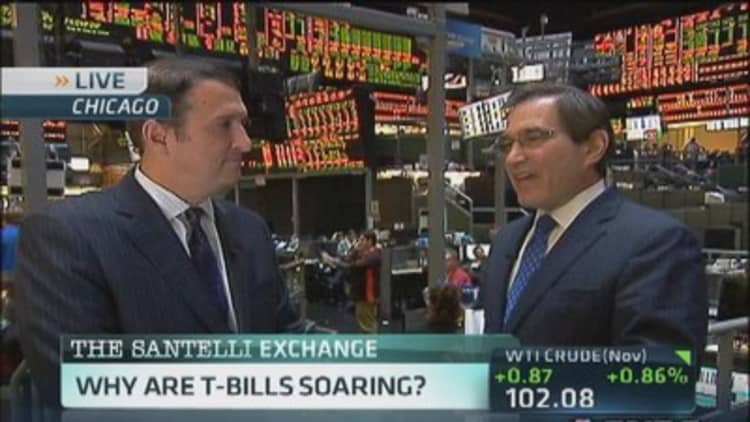Lael Brainard, the top U.S. Treasury official on international economic policy who helped steer the Obama administration's response to the euro-zone crisis, is stepping down from her post at the end of the week, a Treasury official said on Monday night.
Ms Brainard is considered a front-runner for a Federal Reserve governor post, though the White House could not be reached for comment on Monday. If chosen, she would have an optimal background to oversee the Fed's relations with foreign central banks and finance ministries, given her familiarity with the main players in international economic diplomacy.
(Read more: US Treasury market sending DC a message: Pro)
Her departure comes after three and a half years in the job, during which she also had to manage the Obama administration's efforts to push China towards greater appreciation without jeopardizing bilateral relations with the Asian nation.

Ms Brainard's decision to leave the job extends the transition within the top ranks of the U.S. Treasury during Barack Obama's second term in office. In February, Jack Lew took over as Treasury secretary from Tim Geithner. In September, Neal Wolin, the deputy secretary, left his job, and Mr Obama has appointed Sarah Bloom Raskin, a Federal Reserve governor, to fill his shoes.
Ms Brainard's time at Treasury, which began in April 2010, was marked by America's nervous glances at the repeated flare-ups in the sovereign debt crisis afflicting the euro-zone.
Amid concerns that a new financial crisis across the Atlantic could deliver a serious setback to the U.S. economic recovery – and politically harm Mr Obama's 2012 re-election campaign – Ms Brainard and other U.S. officials pressed European governments to mount a more effective and aggressive response to the crisis.
(Read more: US Treasury starts last steps to keep borrowing authority)
But U.S. attempts to influence the euro-zone crisis often had a limited impact – and in some cases were counterproductive, eliciting complaints of excessive lecturing from euro-zone officials. Tensions with Germany flared up just last week after the U.S. Treasury, in one of the last moves overseen by Ms Brainard, criticized the country's export-driven economic policies.
More from the Financial Times:
Yellen to meet Republicans ahead of votes
Raskin chosen for deputy treasury post
Fed includes prime rate in stress tests
On China, arguably America's most important bilateral economic relationship, the U.S. Treasury was facing heavy pressure from Congress to label China a currency "manipulator" and back legislation to punish the Asian nation for its policy on the renminbi. But Ms Brainard and the Obama administration held back, preferring to exert pressure through less disruptive diplomatic channels.
That strategy was partially vindicated by a steady strengthening of the renminbi throughout Ms Brainard's tenure, though some lawmakers have continued to exhort the U.S. government to do more. More recently, currency pressures have been most acute with regard to Japan, given the drop in value of the yen.


